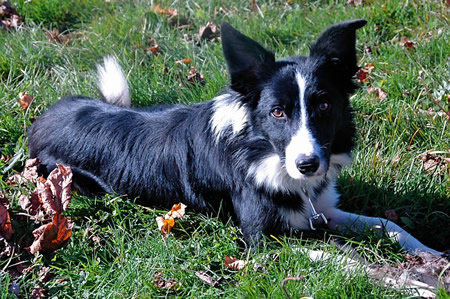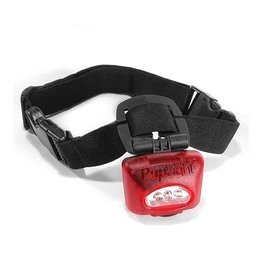
You and your dog have more in common than you may think! Just as you went through different stages in your life, your dog also has specific age ranges where it has different needs and qualities. By being aware of these phases in your puppy’s life you can specifically introduce it to different environmental factors that will greatly influence its future behaviour. If your dog is an adult, being informed of these phases that occurred in its early life may help explain when and how it could have developed certain behavioural problems such as lack of social skills with other dogs or inappropriate bite inhibition.
Humans are born into the world helpless, completely dependent on their mother for care. However, even though you may not have been aware of it, at this stage you were rapidly collecting information about the outside world through your senses. The newborn puppy behaves in a similar manner. They will cry for maternal attention, and are capable of gathering information about the world by smells and touching. They eat and sleep for most the day (if only we could all be so privileged), and their mother has to stimulate them to urinate and defecate. A puppy that is raised by human hands after one week of age and onwards will be more sociable to humans, however, an adverse outcome that may result is more difficulty in socializing towards other dogs. This ‘baby’ period lasts for approximately two weeks after the puppy is born, after which the puppy enters another phase in its life.
This second period in the puppy’s life occurs from about two to three weeks. This is a time period where the puppy grows quickly, both physically and intellectually. They should be very curious, and enjoy the company of their litter mates and mother. Concurrent with the rapid growth, their eyes open and they will often vocalize if upset, like when they are not able to find a litter mate. The puppies are now able to see, hear, eliminate (by themselves), and develop their baby teeth. The sharp pointy teeth your puppy may ‘nibble’ on you with when you first bring it home are these baby teeth. They fall out when they are replaced by your pet’s permanent teeth. The rapid growth that occurs in this stage means that your little bundle of fur is looking more like a miniature adults with every passing day.
The age of three to 14 weeks is when the majority of people will acquire their pet as a puppy, and there are many things you can do to ensure it gets enough socialization for proper development. This is probably the most important time in your dog’s life, from a behavioural perspective, because this is when the dog learns how to play and interact with other dogs. In reality, it is when your dog learns how to act like a dog. Perhaps most importantly, this is when they will also learn inappropriate behaviour. If a puppy is not exposed to different environmental conditions, other species, dogs, people and other stimuli, then there is an increased chance that they will develop fear issues that may progress into aggression. To prevent this from occurring, expose your dog to as many new circumstances as possible (without overwhelming it, of course), and make use of this time when a tiny amount of experience will greatly impact your dog’s future behaviour. Some examples of exciting scenarios to introduce to your puppy are a person carrying an umbrella, vacuum cleaner, walking over a grate; the opportunities are endless! Many veterinary clinics offer puppy socialization classes that focus on puppies in this time span to provide the puppy (and its owner!) with valuable information and experience with other dogs and people to encourage the continual social development of the dog. Another outcome of perhaps paralleled importance is that your puppy will learn to associate the veterinary clinic with good experiences early in its life. This ‘feeling’ about the vet clinic may vary among dogs and depend on how often they make the visit to see the doctor, but overall they will probably have less stress, and cause less hassle for the owner that attended puppy classes to take advantage of the socialization period.
The final stage in the rapid development of your dog’s intricate behaviour occurs at the age of 14 weeks until they are mature (usually 18 months). This can be compared to the human stage of the teenager. This is when the dog determines its level of dominance among family members or other pets, or where it ranks on the ‘totem pole’. The dog may also test its boundaries, just like any teenager growing into an adult. The young dog also becomes more adept at learning and grows until it reaches its full adult size.
“You can’t teach an old dog new tricks” is not necessarily a true statement. You can teach your old dog new tricks, but it requires short training sessions and a lot of patience from both the dog and the owner. Knowing this information may allow you to shed some light on behavioural issues your dog has developed into its adult life and realize why these may take what seems like a lot of time and commitment to change. The rationale is that the early phases of behavioural development are when your dog essentially develops its sense of self, or identity. Much like people, once they have a set behaviour (take smoking for example) into adulthood it takes a lot more effort to rectify. Now that you are aware of these time spans in the age of a young dog, you can use these to teach your dog about the world when it will be able to learn quickly and incorporate this knowledge into its behaviour for the rest of its life.
By Laura Platt – Pets.ca writer
 Interview With A Border Collie Rescuer
Interview With A Border Collie Rescuer
Border Coll
Interview With A Border Collie Rescuer
Interview With A Border Collie Rescuer
Border Coll
 3 Tips to Stop your Dog from Pulling on the Leash While Walking and Keep Your Arms in Their Sockets
If you find walking your dog
3 Tips to Stop your Dog from Pulling on the Leash While Walking and Keep Your Arms in Their Sockets
If you find walking your dog
 Puplight Dog Safety Light Red
Using a Puplight is a great
Puplight Dog Safety Light Red
Using a Puplight is a great
 My Dog Jumps Up On People
The doorbell rings and next
My Dog Jumps Up On People
The doorbell rings and next
 Get Started Training Your Dog
IntroductionSo youve got you
Get Started Training Your Dog
IntroductionSo youve got you
Copyright © 2005-2016 Pet Information All Rights Reserved
Contact us: www162date@outlook.com